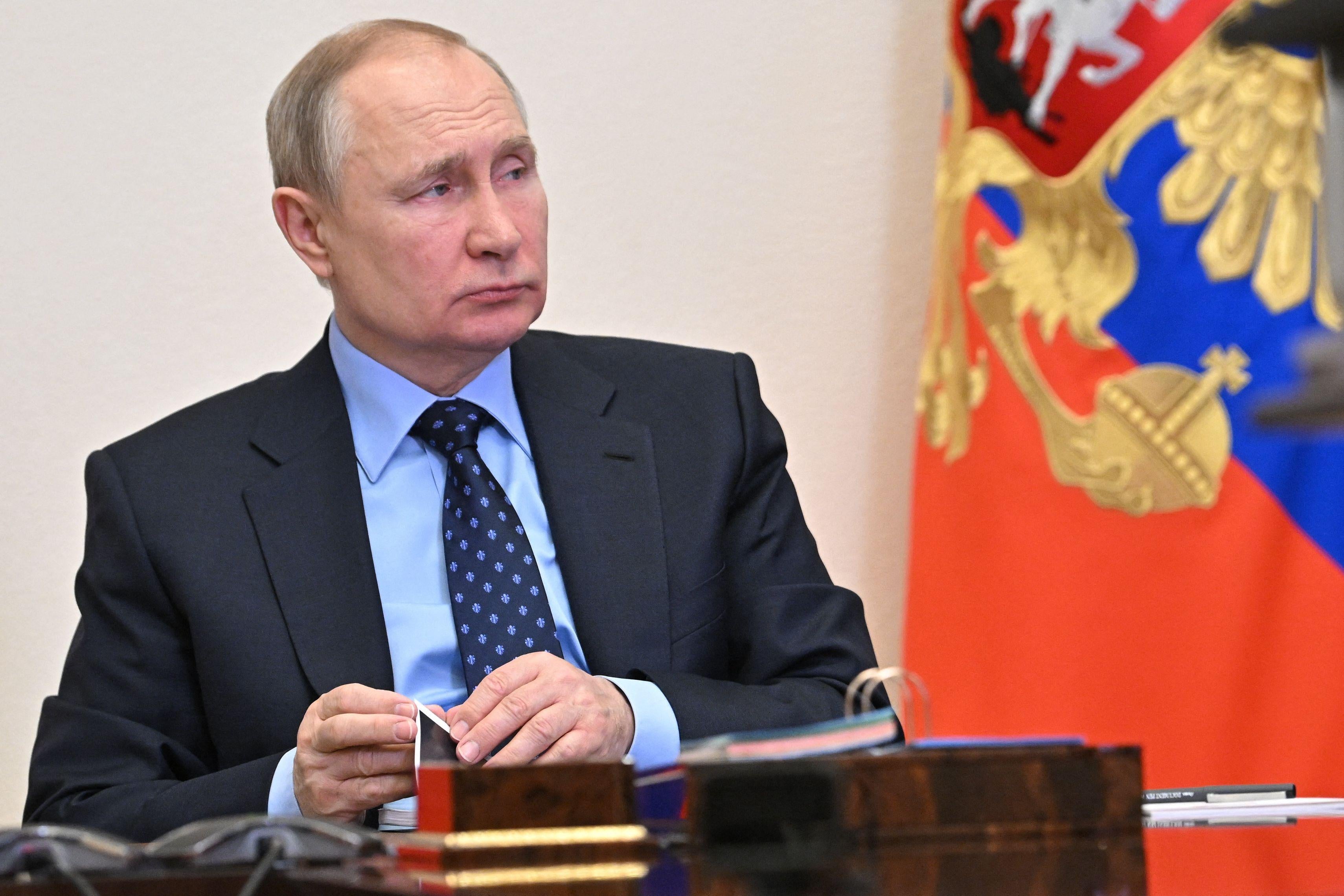As Vladimir Putin steps up his military pressure on the Ukrainian border, there are signs that some members of Russia’s officer corps oppose his actions.
The most eyebrow-raising of these dissents is an open letter by retired Col. Gen. Leonid Ivashov posted on the website of the All-Russian Officers’ Assembly, which he chairs. In it, he rejects Putin’s claim that NATO poses a threat to Russia’s vital interests, warns that invading Ukraine “will forever make Russians and Ukrainians mortal enemies,” and calls on Putin to step down. He concludes, “We, Russia’s officers, demand that the President of the Russian Federation reject the criminal policy of provoking a war in which Russia would find itself alone against the united forces of the West.”
Ivashov is no pacifist. Alexander Golts, a longtime reporter for the Russian military newspaper Red Star, now an editor at Daily Journal, described him in a recent column as “deeply rooted in the Russian establishment.” As an active-duty officer in the 1990s (his rank corresponds to the U.S. Army’s three-star general), Ivashov led the attempt to block NATO troops from entering Kosovo. A hardcore Russian nationalist, he was in charge of Moscow’s military relations with the former Soviet republics in the years following the breakup of the USSR.
Golts, who has known Ivashov for 25 years, wrote that when he first read the open letter, he thought it must be “some kind of fake.” Only this past Tuesday, when Ivashov was interviewed for 36 minutes on Echo of Moscow, an independent radio station, did he realize it was authentic.
Golts was also struck that, unlike most criticisms of Putin, even from less venerated sources, Ivashov’s appeal—which was posted on Jan. 31—hasn’t been taken down. Nor has anyone issued a rebuttal. Nor has any member of Ivashov’s organization dissociated himself from the denunciation.
Anders Aslund, a Swedish economist and longtime Russia watcher who is now a senior fellow at the Atlantic Council, said that, despite its grand title, the All-Russian Officers’ Assembly is small. “The important thing,” Aslund told me, “is that Ivashov is allowed to do this.” The fact that Putin hasn’t taken the post down suggests to Aslund that “there is some opposition to Putin’s policy from within the hardcore military,” perhaps from within the Security Council, which consists of senior officials in the ministry of defense, ministry of interior, foreign intelligence service, and other agencies. If someone powerful wasn’t protecting Ivashov, Aslund said, Putin would have quashed his letter by now.
Some other Russia experts dispute Aslund’s inference, saying it’s at least as likely, if not more so, that Putin regards Ivashov as too trivial to whack. The two have despised each other since 2001, when Putin retired the colonel general as part of his moves to consolidate power inside the Kremlin. Ivashov’s letter is also not the first time he has called Putin a “criminal” or called for his resignation.
Whether or not Aslund’s theory is correct, Ivashov’s post is significant in what it represents about today’s Russian politics. In a recent column in the English-language Moscow Times, Mark Galeotti—a senior associate fellow at Great Britain’s Royal United Services Institute and author of We Need to Talk About Putin—concludes:
The fact of [Ivashov’s] public appeal is significant, in that it speaks to the frustration and concern felt within a fraction of the Russian political scene that tends to remain behind the scenes, yet which has perhaps more traction than any other within the security forces, which are also the ultimate guarantors of Putin’s authority.
Ivashov’s letter also highlights a point overlooked by many Western media analyses—that, as Galeotti puts it, Russian “political opposition to the Kremlin comes not only from the liberal intelligentsia but also [from] nationalists, for whom Putin is not a patriot but an opportunist.”
Another example of internal dissent—less dramatic, but in some ways more intriguing and possibly more significant—is an article by retired Col. Mikhail Khodarenok. As the former head of the Main Operational Directorate of the Russian Armed Forces’ General Staff and the editor of an influential military journal, Khodarenok has strong ties with active-duty senior officers.
In last week’s issue of the widely read Independent Military Review, Khodarenok derides the notion, held by many senior political officials in Moscow, that Russia could conquer Ukraine in short order. This view, he writes, reflects “complete ignorance of the military-political situation and the mood of the broad masses” in Ukraine. It ignores the fact—of which he says there should be “no doubt”—that Western nations would send Ukraine massive quantities of arms similar to the U.S. Lend-Lease Act that helped the Allied armies in World War II. He reminds readers that Josef Stalin’s spies and soldiers “fought the nationalist underground in Western Ukraine for more than 10 years”—and that the resistance fighters in today’s Ukraine would be fiercer still. “Finally,” Khodarenok concludes, “the most important thing: An armed conflict with Ukraine is currently fundamentally not in Russia’s national interest.”
In his Moscow Times piece, Mark Galeotti notes, “We are nowhere near the point where we can meaningfully talk of active opposition” to Putin’s reign or to his military orders. However, posts like Ivashov’s—and, by extension, Khodarenok’s—form “a useful reminder that Russian politics are more complicated than often assumed and that Putin’s belligerent nationalist rhetoric certainly doesn’t convince everyone.”
We don’t know how widespread the views of Khodarenok and Ivashov are. Most media in Putin’s Russia are state-owned propaganda machines (Echo of Moscow radio is one of the few that aren’t). But longtime observers of Russia suspect they reflect deep rumblings within the military. If so, and an invasion of Ukraine bogs down as troops are sent home in body bags, the grounds will have already been laid for serious, perhaps fatal opposition not only to Putin’s war, but possibly to his rule.

